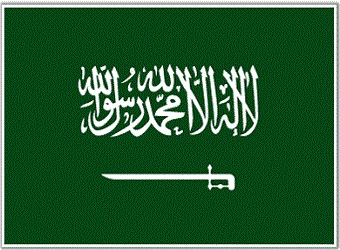Saudi Arabia has suddenly arrested powerful royals and businessmen over the weekend, in what officials call an anti-corruption drive, but outside observers deem domestic power consolidation.
Either way, the move is likely making investors see Saudi assets as riskier, so they’re set to demand higher returns.
Some believe the extraordinary purge is an attempt by 32-year-old Crown Prince Mohammed Bin Salman to consolidate his power by eliminating potential rivals. That may herald political uncertainty, tension and possibly unrest not seen before in the history of OPEC’s biggest oil producer.
Among those removed from power was Prince Miteb Bin Abdullah. Prince Miteb, relieved of his post as head of the National Guard, was once considered a contender for the throne.
“It is not possible to remove and imprison all these top princes and all will be business as usual,” warned Fereidun Fesharaki, founder of energy consultancy FACTS Global Energy.
That expectation of a new normal will likely mean investors need a higher risk premium — the additional expected return on investment compared to a risk-free (but otherwise identical) asset — to invest in the Kingdom.
“This should increase the risk premium for Saudi assets,” said Alastair Newton, a political analyst heading Alavan Business Advisory and a former British diplomat.
Saudi government bonds and credit default swaps will likely reflect the weekend’s developments “in the coming days,” Newton said, adding investors’ assessment of the Saudi Aramco share sale, which may value the state oil giant at $2 trillion or more, could also be impacted.
For what it’s worth, Saudi Arabia’s Finance Ministry said Sunday that the country’s new anti-corruption committee and detention of prominent figures actually enhanced confidence in the rule of law, Al Arabiya television reported.
But even if they are now worried about political risks, investors may eventually buy the argument that business can win from the weekend’s events, especially as the crown prince leads a broad initiative to reshape the Saudi economy.
“This is the latest act of concentration of power in Saudi. As unprecedented and controversial as it may be, this centralisation might also be a necessary condition for pushing the austerity and transformation agenda, the benefits of which very few investors are pricing in,” Hasnain Malik, global head of equity research at the investment bank Exotix Capita commented Sunday.
The anti-corruption campaign is “clearly a preemptive move by MBS [Mohammed bin Salman] to further establish his authority and remove any opposition to his reform plans, and gain some public support for some difficult economic and social reforms,” said Robin Mills, CEO of Qamar Energy, and a former Shell executive. “If the political shake-up passes relatively smoothly and the reform plans begin to move ahead, though, it will be positive.”
International profile
Among those detained in the corruption crackdown was Prince Alwaleed bin Talal, one of the Middle East’s richest people, with investments in Twitter, Apple, Rupert Murdoch’s News Corp and Citigroup.
That, Newton said, “is significant, given he has a much higher international profile than other royals. Investors will take note of this.”
Parag Khanna, a senior research fellow in the Centre on Asia and Globalisation at the Lee Kuan Yew School of Public Policy at the National University of Singapore, said the weekend’s events didn’t entirely surprise him “given some of the internal politics that MBS has aggressively pursued so far.”
Bin Salman in June ousted his elder cousin, interior minister Mohammad bin Nayef, as heir to the throne in what was perceived by many as a palace coup. The 81-year-old King Salman Bin Abdulaziz is expected to abdicate soon, clearing the way for the crown prince’s elevation.
“MBS has repudiated the norms and rules of conduct of the royal family and is emerging as an authoritarian strongman who no longer accepts the ruling-by-consensus style of governing,” said Gal Luft, co-director of the Institute for the Analysis of Global Security, a Washington-based think tank focused on energy security.
The first act
Bin Talal’s arrest “shows that Saudi Arabia is too small for two charismatic men with competing visions especially in light of the fact that the Salman branch of the royal family grabbed power unilaterally,” Luft said.
“Expect the ‘Game of Thrones’ to be fierce,” he said. “This is only the first act and the implications for the oil market will soon be felt as well.”
Oil traders are likely to bid benchmark crude futures higher in Asian trade on Monday on fears of heightened political uncertainty after the Saudi arrests.
An attempted missile strike on King Khaled Airport on the northern outskirts of the Saudi capital Riyadh on Saturday will be an additional bullish driver. Saudi Arabia’s air defense forces intercepted a ballistic missile fired from Yemen over the capital, Riyadh, on Saturday, state news agencies reported.
The missile was brought down near King Khaled Airport on the northern outskirts of the city and did not cause any casualties.
Source: CNBC & Reuters


